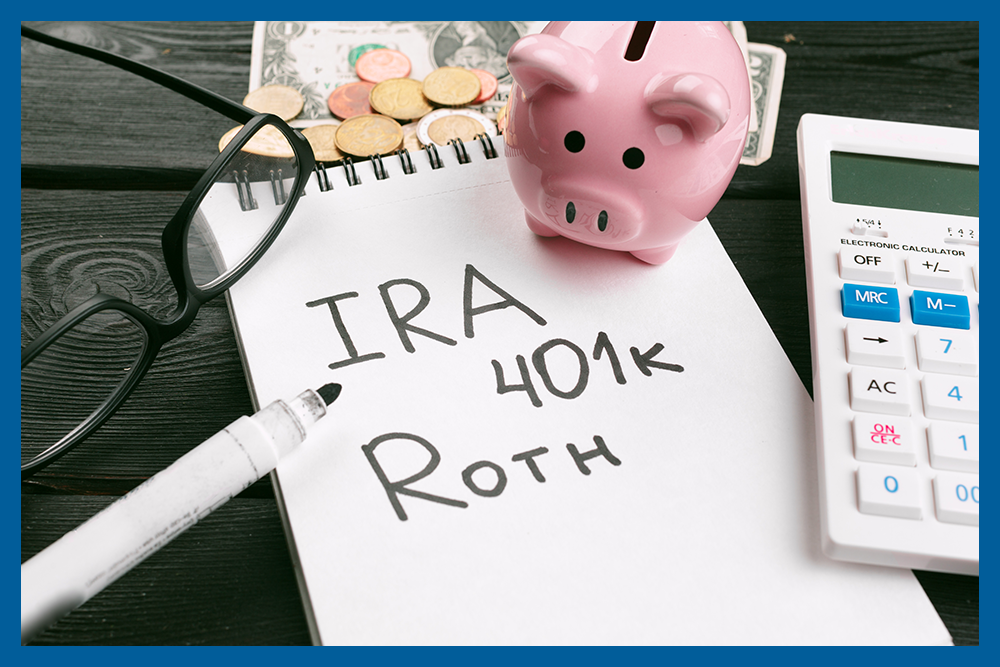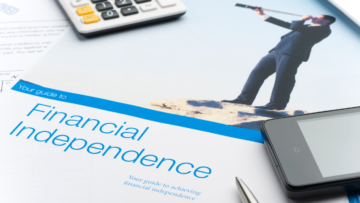What goals do you still need to tackle this year? And which ones do you want to pursue in 2022? Know the moves to make before year-end to start 2022 on the right track.
Americans are living longer these days, and if you retire in your mid- to late-60s, there’s a good chance you’ll end up needing your savings to last 20 years or longer. So, if you’re planning on a long retirement, you could end up selling yourself short.
For your finances, there are a number of moves you can make in the final months of 2021 to help set yourself up for success in 2022 and beyond. The better you plan for retirement, the fewer financial issues you might encounter down the line. If you want to enjoy your senior years to the fullest, taking the time to plan for retirement is a smart bet. Here are some signs your retirement plan might need a refresh.


Many people assume that they’ll manage just fine living mostly — or solely — on Social Security. In reality, those benefits will only replace approximately 40% of your wages if you’re an average earner. And if your earnings are above average, they’ll replace even less.
There’s a possibility that Social Security benefits will be cut in the not-so-distant future. The program’s trust funds could run out of money by 2034, at which point Social Security may not have enough income to keep up with scheduled payments. That’s yet another reason it pays to tweak your retirement plan each and every year. Even if Social Security isn’t cut, you should still only plan on having it provide some of your retirement income, not all of it.


Many people assume that once they enroll in Medicare, their healthcare costs will become far more manageable. Often, the opposite happens. Seniors on Medicare are liable for a number of costs, from premiums to deductibles to copays. It’s important to keep in mind that there are some essential services that Medicare doesn’t pay for, like dental care and eye exams.
If you’re planning to spend less money on healthcare during retirement, you’d better rerun some numbers. Fidelity estimates that the average 65-year-old man retiring this year will spend $143,000 on medical care, while the average 65-year-old woman will spend $157,000.
You can set yourself up to better manage these costs by soaking money away in a health savings account, assuming you’re eligible for one (eligibility hinges on being enrolled in a high-deductible health insurance plan). Otherwise, you can boost your savings in your IRA or 401(k) to cover your future healthcare needs.
Planning for retirement is a smart thing to do, but it’s also important that your planning be spot-on. If these signs apply to you, you may need to revisit your plan so you don’t wind up short on income during your senior years.


Of course, there’s no way to know how long you’ll live. But you may want to prepare for longevity and ramp up your savings rate to ensure that you have a strong enough nest egg to support you throughout retirement. This could entail contributing an extra $100 or so a month to a 401(k) or IRA account or seeking professional investment advice from your trusted financial advisor.
You don’t need to be “behind” in your 401(k) plan contributions in order to be eligible to make these additional elective deferrals. If permitted by the 401(k) plan, participants age 50 or over at the end of the calendar year can also make catch-up contributions. You may contribute additional funds up to:
- $6,500 in 2021 and 2020 and $6,000 in 2019 – 2015 to traditional and safe harbor 401(k) plans
- $3,000 in 2021 – 2015 to SIMPLE 401(k) plans
Inflation was relatively high in the first half of 2021, so the 2022 contribution limits for many of these accounts will be increased. In fact, if you know the latest inflation numbers, it is possible to calculate the increase even before the IRS announces it in October or November. The closer you get to October, the more accurate your projection can be.

Financial planning is essential at all stages of life. Speaking to an experienced advisor can help you focus on your financial goals and give you the means to achieve them. But the hard work doesn’t stop once the plan is in place. Financial advisors can provide an estimated outlook on the impact and make recommendations for alternative measures if necessary.
Whether checking on the progress of investments, making tweaks to retirement dates, or upending your plan entirely, checking in with your CKS Summit Group advisor is crucial.
Contact us here today to discuss whether an early, phased or late retirement strategy is best for you!



